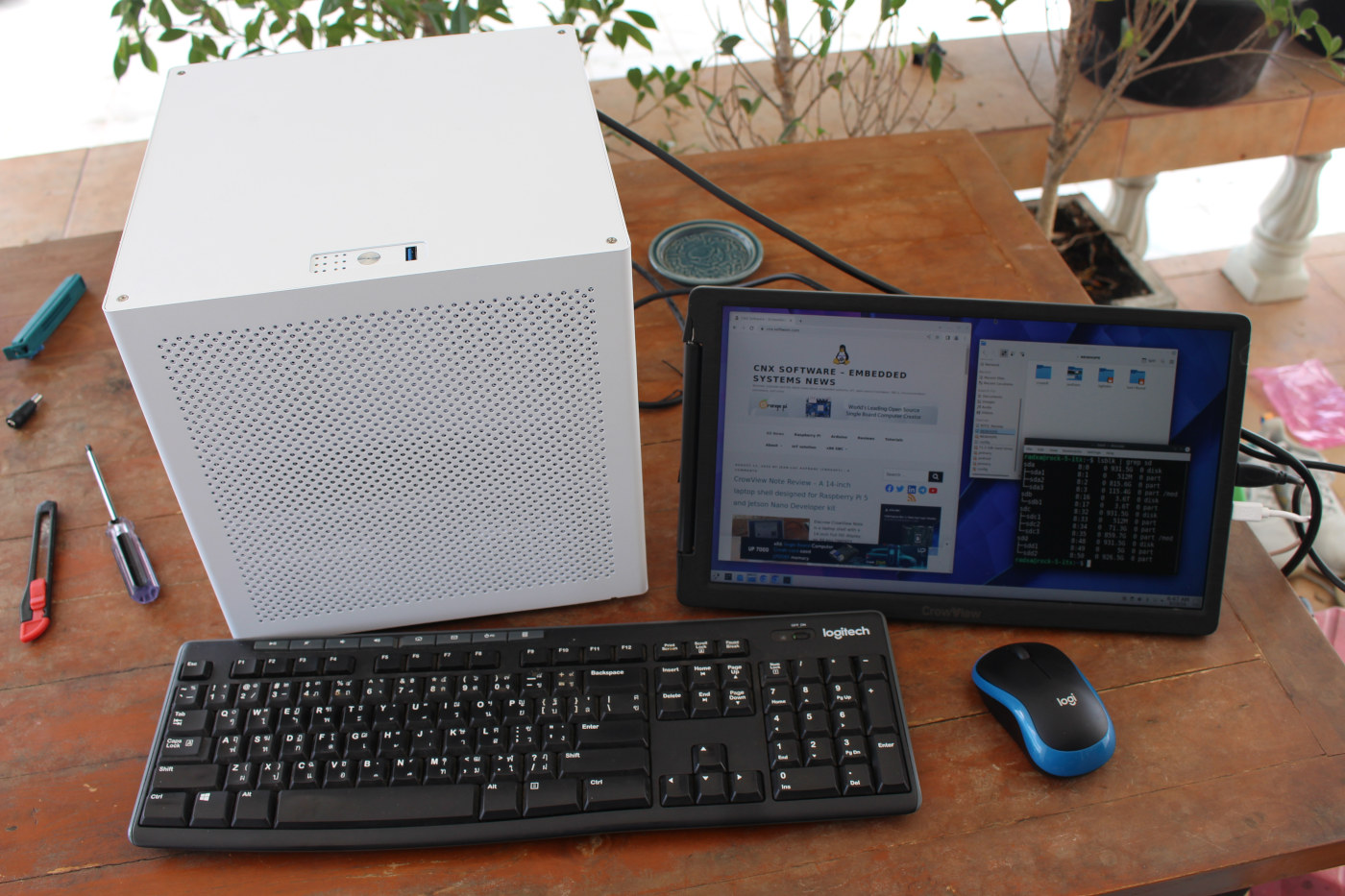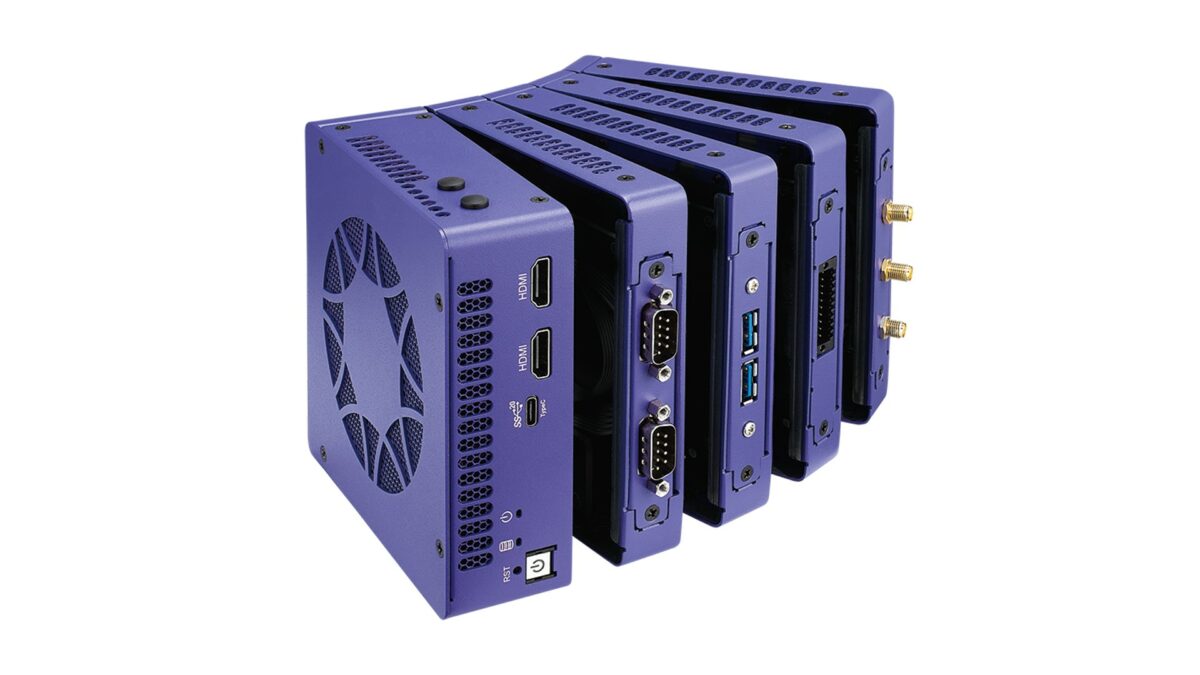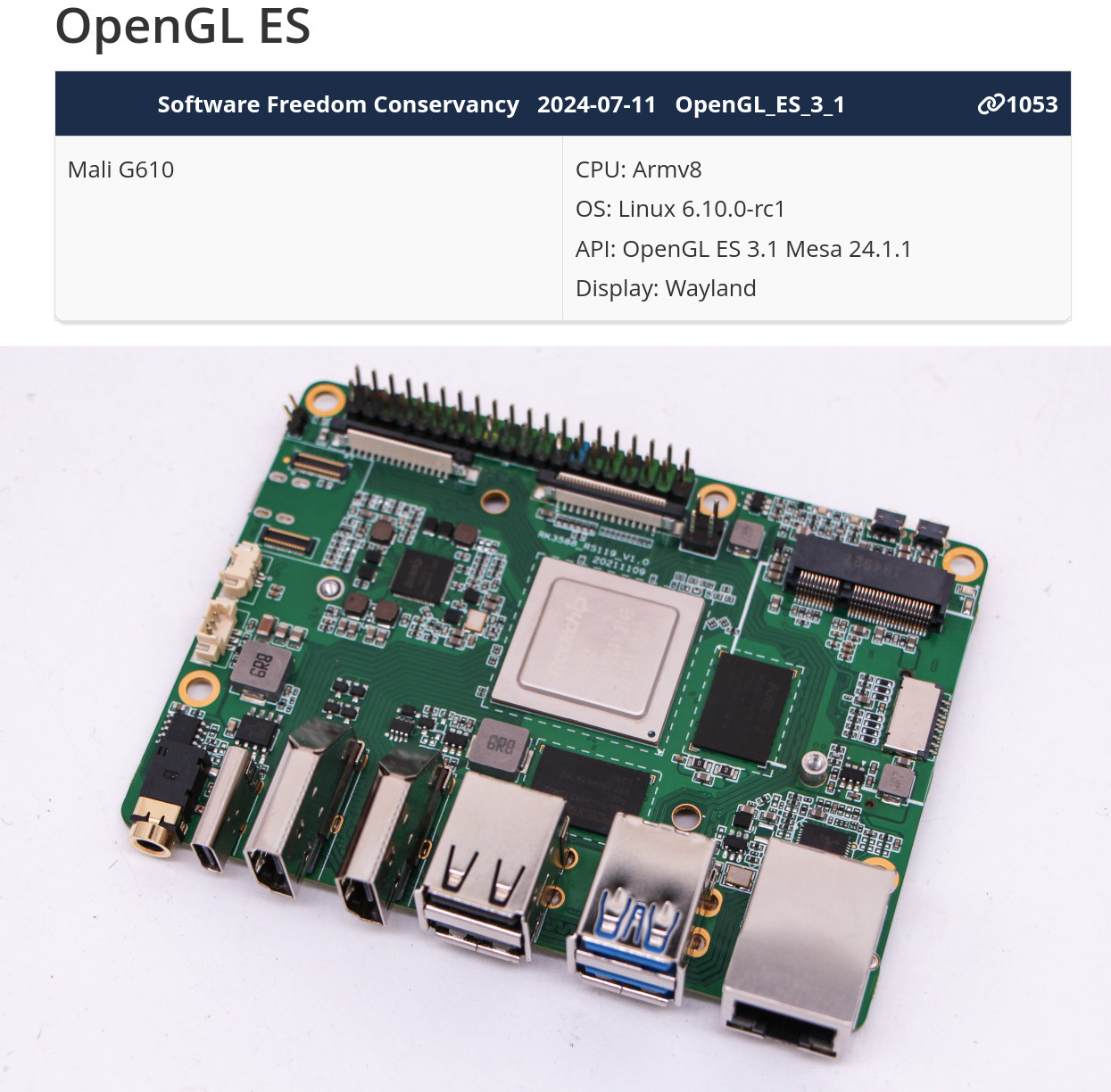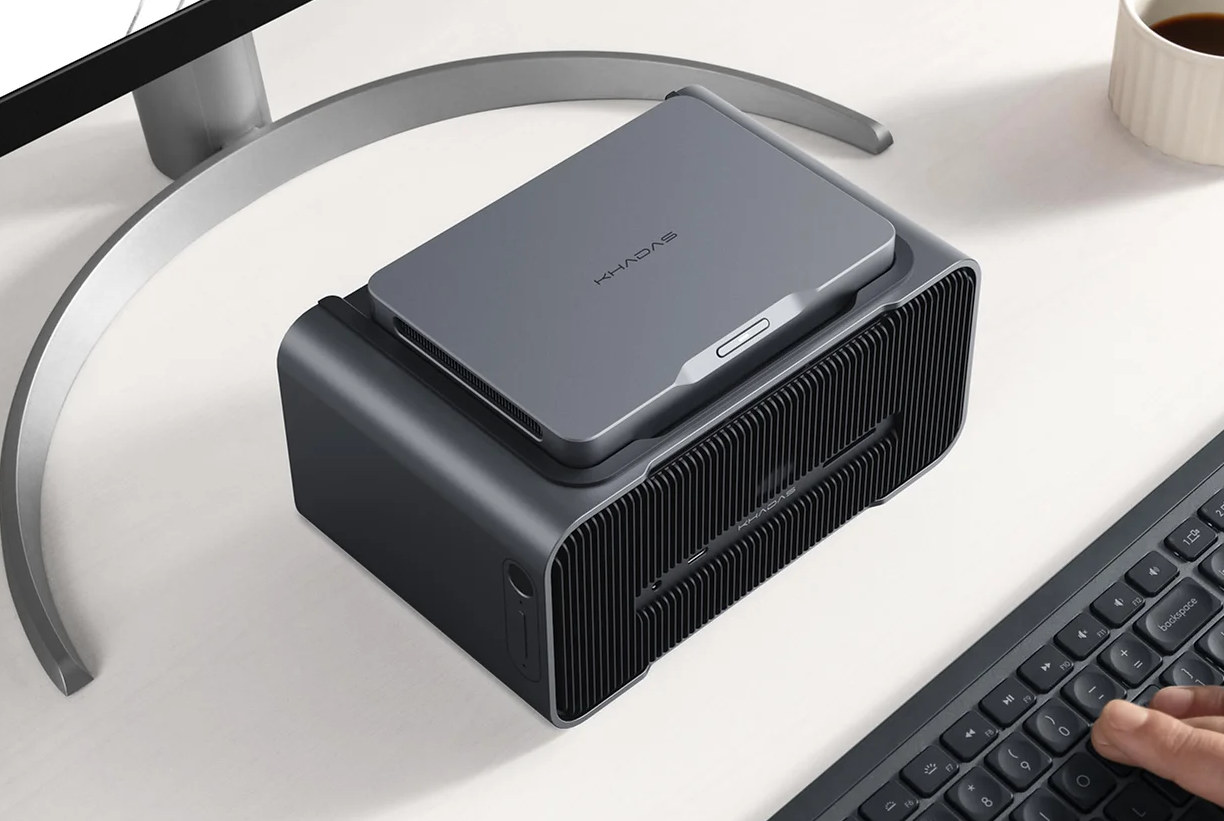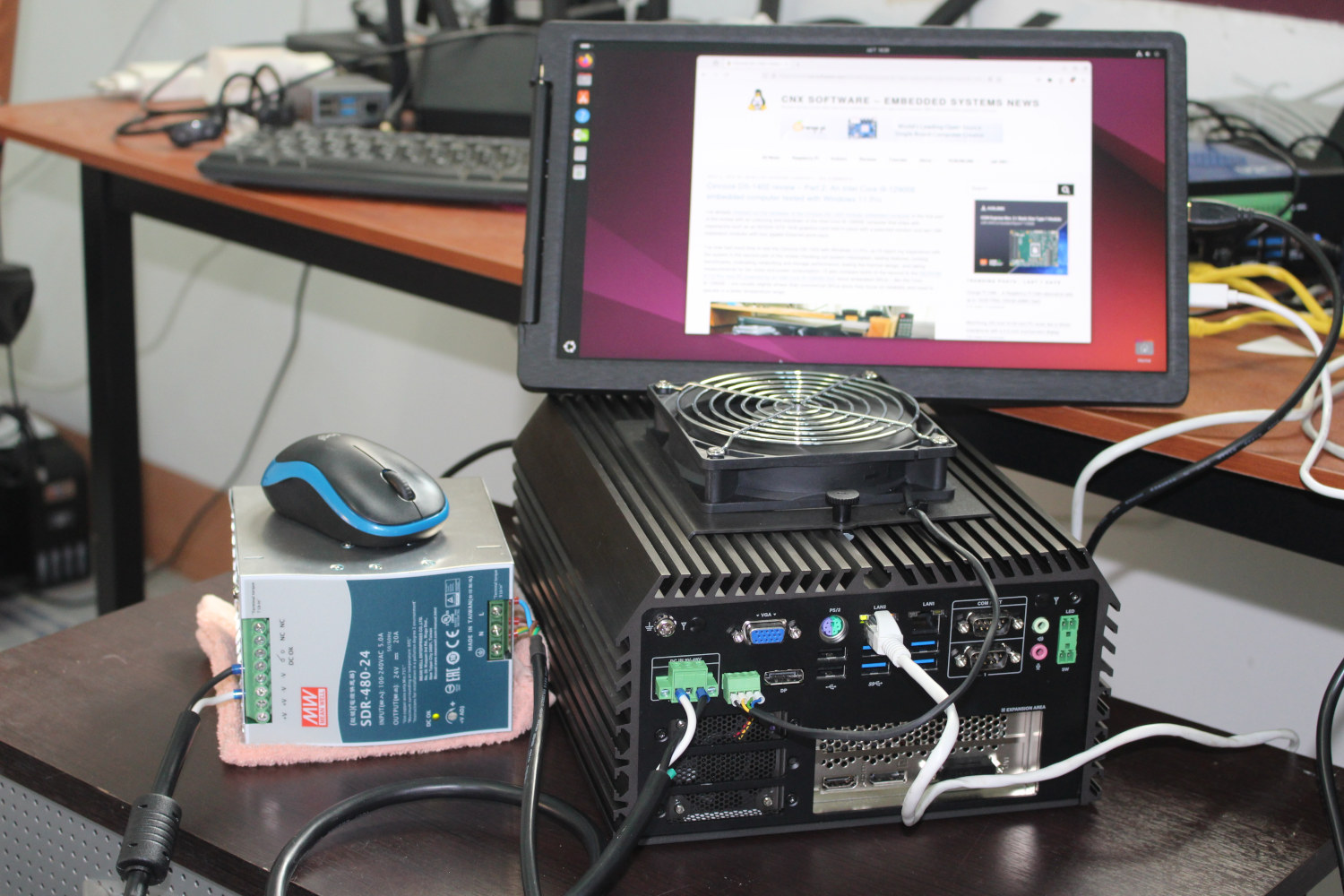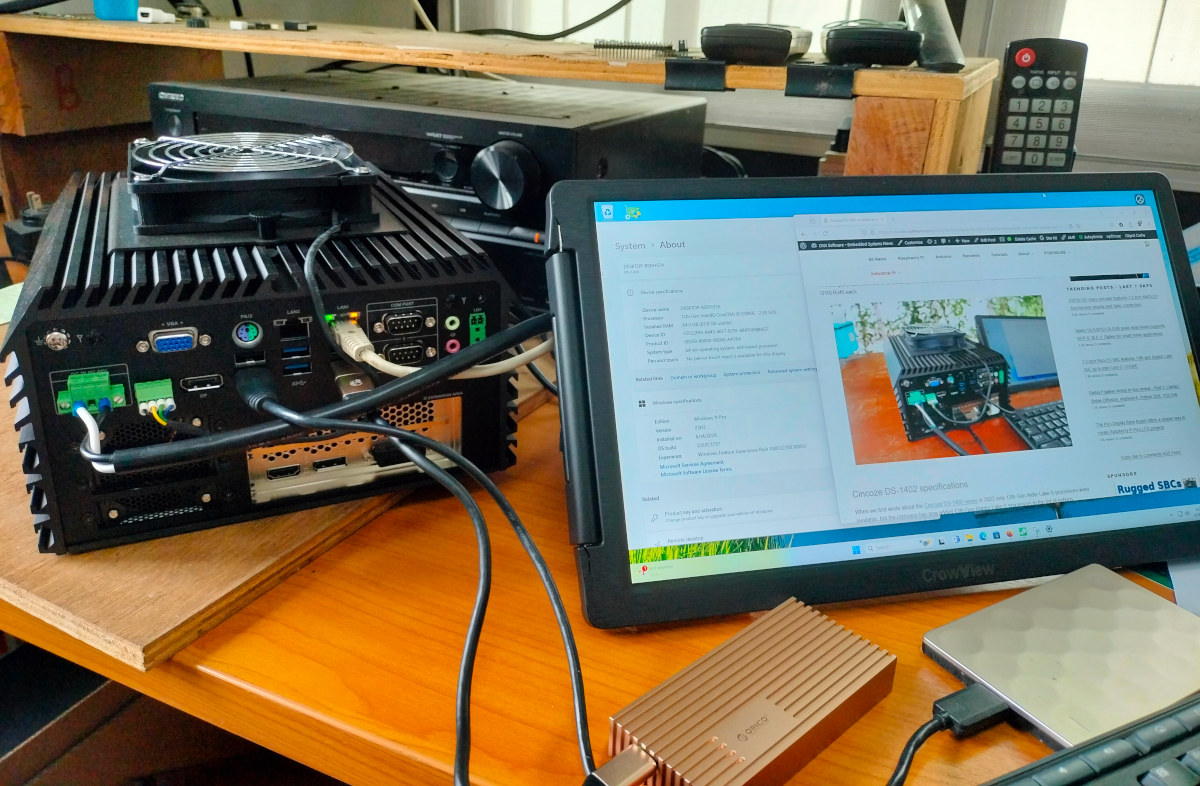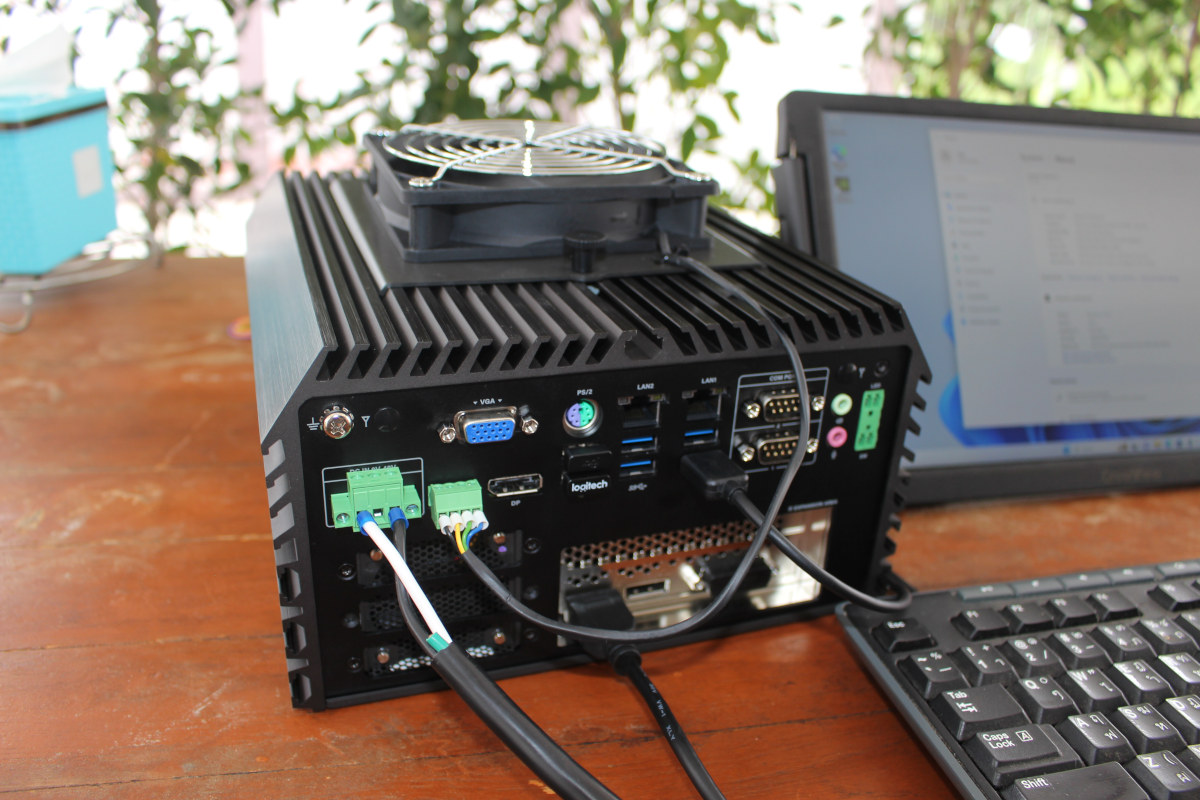Vecow has introduced the EVS-3000 series, a new line of AI computing systems powered by Intel Core i9/i7/i5/i3 (14th Gen) processors with embedded MXM graphics. These systems deliver high computing power, come with multiple PCIe slots for expansion, and support remote monitoring making them ideal for edge AI applications such as autonomous robotics, public security, and machine vision. The EVS-3000 series includes both fan and fanless models: EVS-3100, EVS-3200, EVS-3300, EVS-3400 without fans, and EVS-3100(F), EVS-3200(F), EVS-3300(F), EVS-3400(F) with fans. All systems are powered by Intel R680E chipsets and feature compact NVIDIA or AMD MXM graphics, with support for 2.5GbE LAN, Out-of-Band (OOB) management, and multiple PCIe Gen 4 slots. These systems deliver high performance for AI computing at the edge for applications such as machine vision and robotics. As you may know, we’ve previously covered several Vecow AI computing systems, including the TGS-1000 Series, SPC-9000 fanless embedded system, ECX-3200, […]
Radxa ROCK 5 ITX RK3588 mini-ITX motherboard review – Building an Arm PC and NAS with Debian KDE
In this review, I’ll show how I installed Debian on the ROCK 5 ITX mini-ITX motherboard powered by a Rockchip RK3588 octa-core Arm Cortex-A76/A55 processor, before building a computer/NAS with the Arm mini-ITX motherboard, testing various features and running benchmarks. In the first part of the review, we checked out the Radxa ROCK 5 ITX (Arm) and Jupiter (RISC-V) mini-ITX motherboards with specifications and unboxing, and the Auriga 6-Bay NAS mini-ITX chassis used in this review. I already built the computer with the Jupiter RISC-V mini-ITX motherboard, so here I simply switched the RISC-V motherboard with the Radxa ROCK 5 ITX Arm motherboard and installed a few SATA drives. Radxa ROCK 5 ITX first boot – A tricky start… Radxa provides getting started instructions on the documentation website which I mostly follow to hopefully boot within a few minutes. I had to prepare the hardware first. So I installed a […]
Vecow TGS-1000 – A fanless, stackable embedded computer with Intel Core Ultra Meteor Lake SoC
The Vecow TGS-1000 Series is an ultra-compact, fanless, stackable embedded computer that includes the TGS-1000 and TGS-1500 models, powered by the latest Intel Core Ultra Metero Lake processors with integrated CPU, GPU, and NPU. It supports up to 96GB DDR5 memory and stackable expansion options for networking, serial, wireless, and more. This series is optimized for edge AI applications, offering up to 14% increased CPU productivity and enhanced graphics capabilities. The TGS-1000 Series offers up to five independent displays through two HDMI and three DP ports. It features a variety of I/O connections, including up to 5 USB 3.0 ports (4x Type-A and 1x Type-C) and one 2.5GbE LAN supporting TSN, making it ideal for vision and automation applications. Its modular design allows flexible expansion for USB, isolated DIO, COM, LAN, or 4G/LTE, suitable for AI, smart retail, office communication, and gaming. The TG-1500 series adds support for MXM graphics […]
Panthor open-source driver achieves OpenGL ES 3.1 conformance with Arm Mali-G610 GPU (RK3588 SoC)
Collabora has just announced that the Panthor open-source GPU kernel driver for third-generation Arm Valhall GPUs (Arm Mali-G310, Mali-G510, Mali-G610, and Mali-G710) has now achieved OpenGL ES 3.1 conformance with the Arm Mali-G610 GPU found in the Rockchip RK3588 SoC. Just a few days ago, Linux 6.10 was released with “support for Mali CSF-based GPUs found on recent Arm SoCs from Rockchip or Mediatek”, as expected from the earlier article entitled “Panthor open-source driver for Arm Mali-G310, Mali-G510, Mali-G610, and Mali-G710 GPUs to be part of Linux 6.10” published last March. But this did not say anything about the level of support for the Valhall GPU since it’s common for new hardware to be added with minimal support, and OpenGL ES 3.1 compliance means it’s ready for business… Collabora’s announcement explains this was tested on a Radxa Rock 5B single board computer: The conformance tests ran on a Rock5b board […]
Khadas Mind Graphics NVIDIA RTX 4060 Ti GPU dock for the Mind mini PC is now available for $999
The Khadas Mind Graphics is a dock for the Khadas Mind Raptor Lake mini PC that integrates an NVIDIA Geforce RTX 4060 Ti GPU and enables users to run high-end games, edit videos, design graphics, and experiment with AI while keeping the portability and small size of a mini PC. As we’ve seen in our reviews, mini PCs now match the performance of larger machines in almost all aspects with tools like PassMark Performance showing higher-end models’ CPU, memory bandwidth, and storage in the top 10% or 20% of systems. The exception is 3D graphics performance because integrated GPUs can’t match the performance of higher-end graphics cards. The Khadas Mind Graphics solves that by adding an NVIDIA Geforce RTX 40601 Ti GPU to the Khadas Mind mini PC through its Mind Link connector also bringing out other connectors such as 2.5GbE, USB, SD card, etc… Khadas Mind Graphics specifications: Graphics […]
Cincoze DS-1402 review: Part 3: Ubuntu 24.04 tested on an Intel Core i9-12900E embedded system
In part one of the Cincoze DS-1402 review, I checked out the hardware of the modular rugged computer before testing the Intel Core i9-12900E embedded computer with Windows 11 Pro in the second part, and I’ve now had time to test the Cincoze DS-1402 embedded system with Ubuntu 24.04. I’ve tested most features in Linux, ran some benchmarks, evaluated the gigabit Ethernet performance of some of the ten Ethernet ports, checked CPU temperature under a stress test with and without the fan, measured power consumption, and more. Ubuntu 24.04 system information I installed Ubuntu 24.04 with the official x86_64 ISO in dual boot configuration with Windows 11 Pro. The installation process was smooth, and I have nothing specific to report here. Going to the Settings->About window confirms we have a CINCOZE-DS-1400 system (DS-1402 is part of the DS-1400 family) with a 24-thread 12th Gen Intel Core i9-12900E processor and 64GB […]
Cincoze DS-1402 review – Part 2: An Intel Core i9-12900E embedded computer tested with Windows 11 Pro
I’ve already checked out the hardware of the Cincoze DS-1402 modular embedded computer in the first part of the review with an unboxing and teardown of the Intel Core i9-12900E computer that ships with expansions such as an NVIDIA GTX 1630 graphics card held in place with a patented solution and two CMI expansion modules with four gigabit Ethernet ports each. I’ve now had more time to test the Cincoze DS-1402 with Windows 11 Pro, so I’ll report my experience with the system in the second part of the review checking out system information, testing features, running benchmarks, evaluating networking and storage performance, testing the thermal design, and taking measurements for fan noise and power consumption. I’ll also compare some of the second to the GEEKOM XT12 Pro mini PC powered by an Intel Core i9-12900H SoC since embedded SKUs – like the Core i9-12900E – are usually slightly slower […]
Cincoze DS-1402 modular embedded computer review – Part 1: Specs, unboxing, teardown, and first boot
Cincoze has sent me a sample of the DS-1402 modular embedded computer for review. The system is offered with a range of 12th Gen Alder Lake-S or 13th Gen Raptor Lake-S processors and features various expansion options with two PCIe slots, two CMI module slots, a CFM module slot, and three MEC (mini PCIe) module slots. The review sample is equipped with an Intel Core i9-12900E 16-core Alder Lake-S processor, 64GB DDR5 memory, a 512GB NVMe SSD, and an NVIDIA GTX1630 graphics card inserted into one of the PCIe slots. The company also fitted the embedded system with two CMI modules on the front panel with four GbE (Intel I210) RJ45 each. Cincoze DS-1402 specifications When we first wrote about the Cincoze DS-1400 series in 2022 only 12th Gen Alder Lake-S processors were available, but the company has now added 13th Gen Raptor Lake-S processors to the list of options. […]



